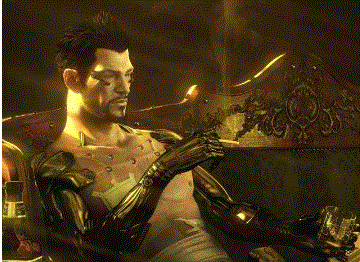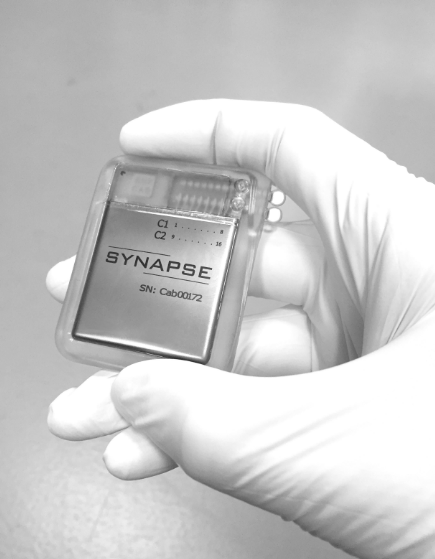How bioelectronics will make humans more robotic than ever

Will Rosellini, chairman & CEO of Nexeon
In 2013, president Obama launched the BRAIN Initiative as a large-scale effort to equip researchers with insights necessary for treating a wide variety of brain disorders like Alzheimer’s, schizophrenia, autism, epilepsy, and traumatic brain injury.
The World Health Organisation estimates that devastating brain disorders affect more than one billion people worldwide.
The NIH component of the BRAIN Initiative is guided by the long-term scientific plan BRAIN 2025: A Scientific Vision, which emphasises an early investment in basic neuroscience research. Over the past two years, researchers funded by the NIH BRAIN Initiative have produced several breakthroughs and published over 125 academic research articles.
For many decades now, electricity has been applied to the body to elicit clinical responses and combat various diseases in the form of pacemakers, hearing aids, and implantable neurostimulators. This therapeutic science has now become known as “bioelectronics”, and in recent years, it has experienced exponential enhancement of the hardware and firmware associated with medical devices.
Industry leaders and entrepreneurial newcomers are now driving towards solutions that include medical devices capable of collecting information from the body and software that can interpret and modulate therapeutic parameters based on this feedback.
 By closing the loop with these system components, patients with chronic diseases can be restored to a normal state with minimal interruption to their quality-of-life; and now, this closed-loop technology is being developed to augment healthy individuals beyond normal levels.
By closing the loop with these system components, patients with chronic diseases can be restored to a normal state with minimal interruption to their quality-of-life; and now, this closed-loop technology is being developed to augment healthy individuals beyond normal levels.
Will Rosellini, chairman and CEO of Nexeon MedSystems Inc., is a former minor-league baseball pitcher and holds five master’s degrees in addition to a law degree. He is a 15-year veteran of the neurotechnology space, contributing as both an entrepreneur and neuroscience researcher.
Rosellini previously founded Microtransponder (MTI), which is developing a vagus nerve stimulation device for the treatment of stroke and tinnitus. He also founded and led Sarif Biomedical LLC, a stereotactic microsurgery company, and Lexington Technology Group LLC, to successful exits.
“My passion for automating the nervous system began 15 years ago when I understood the potential power behind stimulating the brain and nerves,” explained Rosellini. Early on in his neuroscience endeavors, Rosellini and the team at MTI spent years collaborating with neuroscientists from the University of Texas at Dallas discovering paired vagal nerve stimulation (VNS) as a viable therapy for the treatment of tinnitus and stroke.
After reaching certain inflection points and launching a number of clinical trials, Rosellini left MTI to join his current team at Nexeon to develop a suite of bioelectronics devices. These devices feature technology that eliminate the burden on patients to consistently monitor or adapt to their symptoms and significantly reduce the post-operative time requirement for physicians by decreasing iterations on system input variables to deliver targeted therapy.
Leading the charge to revolutionise the delivery of medicine, Nexeon founder and current chief innovation officer Dr. Mark Bates strategically elected to partner with Rosellini serving as CEO and chairman for this next chapter of the Company.
“My experience [as a physician and medtech innovator] coupled with Will’s ingenuity in neurostimulation,” said Bates, “Has provided a launchpad for innovative products that will really address patients’ biggest unmet needs while streamlining the care delivery system.”
Dr. Bates is considered to be a thought-leader in the field of interventional cardiology after performing over 5,000 procedures. Also a prolific inventor, he has innovated on 60+ patents that are in various stages of development, but most notably, leading products have gone on to be successfully developed and sold to major companies including W. L. Gore, Cook Medical, and Boston Scientific. He has contributed as a member of scientific advisory boards for Medtronic, Boston Scientific, Guidant, and SciMed and was on the Johnson and Johnson Key Opinion Leader Council.
Bates and Rosellini explained their first collaboration to be a passion project for each: developing a novel way to use stimulation to deliver precision medicine. Currently in early stages of R&D, the IonCath project is a transvascular stimulation system that allows for iontophoretic drug-delivery via a carbon-nanotube-reinforced balloon catheter.
This device improves upon current systems by using electrically-activated iontophoresis to induce greater drug absorption of drugs with more uniform distribution into the targeted, surrounding vasculature.

The first application of this device will be for treatment associated with lower extremity peripheral arterial disease (PAD), a disease in which fatty material (plaque) builds up in the arteries in the lower extremities.
The Nexeon R&D team has already received positive results from early evaluation of device design and is currently in the midst of preparing for preclinical trials related to this device.
“I am confident that we will continue to move in a direction where implanted devices are as sophisticated as a smartphone,” Rosellini stated, “And the corresponding applications on this platform will be readily available and easy to implement.
Patients will be restored to normal; healthy people will be able to maintain their independence and quality-of-life for much longer; and soldiers will be able to augment their abilities before going into battle.”
 GlaxoSmithKline (GSK) and Google have also joined this burgeoning space of bioelectronics this year with a $712M joint venture in the name of Galvani Bioelectronics headquartered in the UK2.
GlaxoSmithKline (GSK) and Google have also joined this burgeoning space of bioelectronics this year with a $712M joint venture in the name of Galvani Bioelectronics headquartered in the UK2.
GSK has an ongoing, multi-year manufacturing agreement with Nexeon to supply Galvani with devices for its internal R&D programs3. Galvani anticipates launching its first treatment applications for regulatory approval in 2023.
Separate from his medtech entrepreneurial endeavors but reflective of his commitment to contributing to the future vision of this field, Rosellini has served as a leading science consultant to Deus Ex, a video game series set in 2027 that focuses on the effects of transhumanistic attitudes and technologies in a dystopian future setting.
Rosellini provides ongoing counsel regarding the anticipated pace of future tech development and associated inflection points on the horizon for human augmentation.
Comment on this article below or via Twitter @IoTGN
